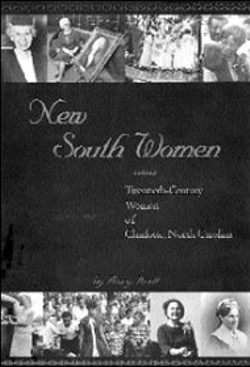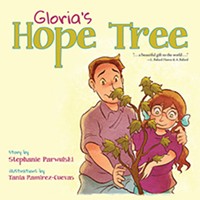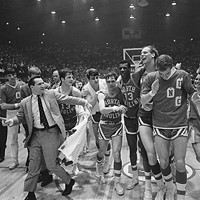Opening The Door Themselves
The rise of women's influence in Charlotte
The book, which opens with a sharpshooting performance by Annie Oakley in Charlotte's Latta Park in 1901, is set against a rich, and well-researched historical background of a slow-to-change Southern city in a state that did not ratify the 19th Amendment, which gave women the right to vote, until 1971, although Congress passed it in 1920.
The book focuses on no one woman, but tells the story of a woman's changing place in the New South through anecdotes that alternately bring tears to your eyes and cause you to throw back your head and roar with laughter.
Take the case of Gail Sloan and Mickey Casey, the first two women ever sworn in to the Charlotte Police Department. While men needed only a high school diploma to qualify, women had to have a four-year college degree -- and they had a tough time chasing suspects in the skirts and high heels they were required to wear.
Women like Minette Trosch couldn't teach while pregnant in Charlotte schools in the mid-1960s. Trosch, who eventually was elected to the Charlotte City Council during a time when the Charlotte Observer still described council candidates as "the men running for council," details the lengths to which women went just to compete and make their mark in a male-dominated Charlotte. Before her candidate's editorial board meeting with Charlotte Observer staff in the 1970s, Trosch researched where the reporters lived and their likely routes to work, and stuck her limited ration of signs in yards along the way, prompting one reporter to comment on how well-organized her campaign was.
Kratt uses rich, untold stories like these for amusement and to reconstruct, at the same time, an intricate picture of the city's male-dominated social structure and the limited avenues women had available to them outside the home to positively impact their city or enrich their own lives. It becomes clear that for much of the last century in Charlotte, women could only gain public credibility or rise to positions of power through work, often volunteer, with groups or organizations that catered to socially elite women who had made good marriages. This, of course, meant that women of color, Catholics, Jews or women of lower socio-economic status had virtually no avenues open to them to impact our city until relatively recently in Charlotte's history.
A sad and often touching story, it's one that must be told, as one woman Kratt quoted said, if women are to remember "what people before me have done to open doors."
The book is available at the library, the Levine Museum of the New South, or for $14.95 at Little Professor Book Center, Barnes and Noble at SouthPark, and Borders bookstores.
Latest in Books
Calendar
-
An Evening With Phil Rosenthal Of "Somebody Feed Phil" @ Knight Theater
-
Kountry Wayne: The King Of Hearts Tour @ Ovens Auditorium
-

NEW WINDOW GALLERY-Pat Rhea-ACRYLIC PAINTINGS-April 05-30 2024 VALDESE, NC 28690 @ New Window Gallery/Play It Again Records
- Through April 30, 12 p.m.
-

Trap & Paint + Karaoke @ Zodiac Bar & Grill
-

LIVE MUSIC FRIDAYS!!! @ Elizabeth Parlour Room
-
Fall Guide: Upcoming festivals, comedy shows, visual arts events and more
-
Failure To Communicate
Worthy play could use more nuance
-
Susan Brenner Examines Upheaval While Celebrating Trees
Chaos and beauty











